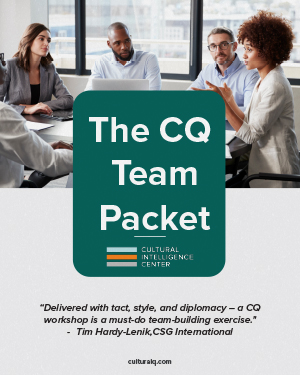Talk to most anyone who has worked on getting a deal in China and they’ll tell you stories about people who insisted on getting them drunk. In a culture where relationships can make or break you in business, getting drunk with a potential business partner is often viewed as a crucial way of solidifying that relationship and showing that you are, in fact, friends.
What’s behind this custom and what’s a culturally intelligent way of responding to it? First off, before I go any further, all the usual cautions about not stereotyping apply here. There are roughly 1.5 billion Chinese people in the world so far be it from me to make broad sweeping descriptions about all Chinese officials or business people. At the same time, those traveling to China are wise to recognize that some recurring drinking rituals are often a part of doing business in China.
First, business dinners start with an invitation. Typically, the person doing the inviting should be of at least the same level as the person being invited. Furthermore, the person doing the inviting pays for dinner. Chinese individuals who follow more traditional norms will make the dinner invitation in person or by phone, not by email or text message. Email is considered too impersonal and it allows a tangible record of those with whom you do business.
Unlike most Western business dinners, business itself is usually the least talked about topic during a Chinese business dinner. If anything, it’s saved for a sliver of time at the end of dinner, although at that point, most of the people involved are so drunk that no real business decisions can come out of it.
But don’t think this means it’s a waste of time. The point of the dinner is to solidify relationships. It’s a big part of determining whether you’re trustworthy. Expect personal questions and don’t be afraid to talk about your personal life. And if you keep drinking, it will be seen as a symbol of friendship.
But beware. Chinese wine is generally about 40-60 percent alcohol and it’s poured into small cups, which resemble miniature wine glasses. Basically, each cup is like taking a shot of hard liquor. The more you drink, the more pleased your cohorts will be, because it shows you’re willing to get drunk with them, just like you would with your friends.
Alcohol has a very long tradition in Confucian society. Confucius, who advocated only eating at meals times and not in between made an exception for wine. He said, “Only wine drinking is not limited.” Today, drinking is a standard part of most Chinese social engagements: birthday celebrations, weddings, and of course Chinese New Year. So to drink with a new business associate is to be brought into their inner circle.
It’s believed that drinking together deepens and strengthens friendships because it loosens people up and helps relieve misunderstanding, no matter how tense the situation might be. Granted, there are certainly times when excessive drinking is being used to wear you down. But the primary orientation behind this practice is social.
So while the heavy drinking that often occurs in Chinese business settings might seem like it violates the Confucian concerns for moderation and etiquette, it centers around the Chinese ideals of building relationship and promoting social harmony.
What do you do if you don’t drink or are unwilling to get drunk? First of all, Caucasians can typically handle more alcohol than many Chinese can so if you’re a Caucasian, you at least have an advantage there. If you decide to drink very little or not at all, just realize that you’re going to have to work extra hard to develop the kind of bonding and relationship building that would otherwise come from the drinking ritual. And if the reason you’re not drinking is health-related, just state that upfront. But work extra hard to enjoy the food you’re served.
Cultural intelligence doesn’t mean you have to be like whomever you’re with. There are things I refuse to do, whatever the cultural norms of a group. But a culturally intelligent person will at least consider how not adapting may be perceived in the other culture, and account for it accordingly.
